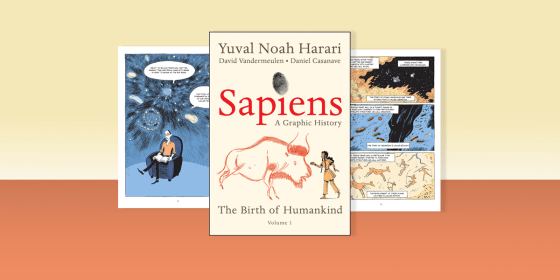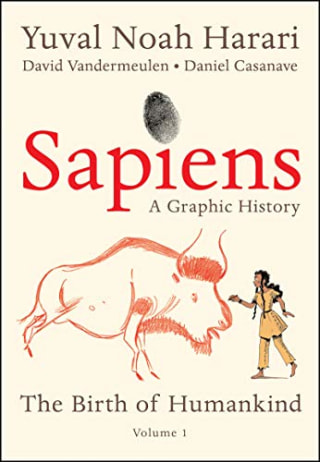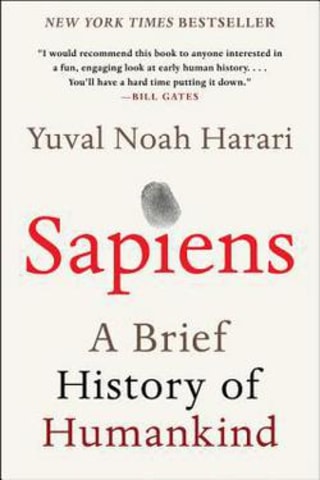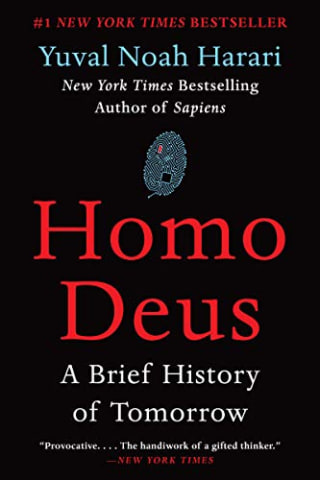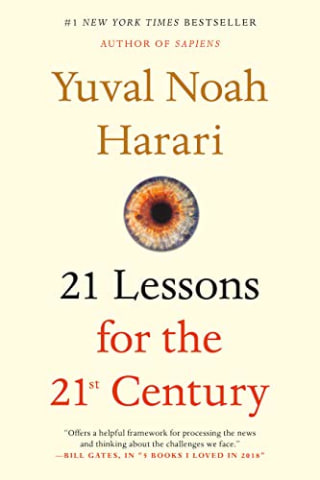Next week, Yuval Noah Harari’s bestselling “Sapiens: A Brief History of Humankind” will get a comic treatment with the release of the first volume of “Sapiens: A Graphic History: The Birth of Humankind.” This will be Harari’s fourth in the series of books he’s written about the same topic, following the second “Homo Deus: A Brief History of Tomorrow” and third “21 Lessons for the 21st Century.” All of them bestsellers and list toppers, it’s likely that this latest release will also climb the charts this winter and in 2021.
Keep up with our 2020 election coverage
If you’re already a fan of any of these books or of Harari himself, you might want to consider grabbing one of these pre-orders sooner than later to avoid possible shipment delays expected in coming months — especially if you're planning a gift for someone this holiday season. If you want to get your hands on a copy of the upcoming graphic book, you have several options:
- You can pre-order the book now in either hardcover or paperback ahead of its Oct. 27 release and ship date.
- The Sapiens graphic history’s Kindle version will go live on Nov. 3.
To give you an idea of what the graphic history is all about, we’re taking a look at how Harari pivoted his work into the graphic format and what you’ll find in its first volume, as well as a brief overview of its predecessors.
1. “Sapiens: A Graphic History: The Birth of Humankind” by Yuval Noah Harai, adapted by David Vandermeulen and illustrated by Daniel Casanave (pre-order, ships Oct. 27)
- Goodreads: 4.8-star average rating, more than 20 reviewers
The illustrated first volume includes about 250 pages of full-color graphic adaptations of the original work from Harari. “Refreshingly, Vandermeulen and Casanave don’t treat the original text as a sacred calf, and take risks as they transform the sprawling scientific history into an accessible visual narrative,” reports Publishers Weekly. In the narrative, the author takes on the role of a graphic avatar and leads the reader through the history he outlined in his 2015 book.
To get a better picture of the graphic novel’s significance, it’s best we take a look at the initial work that preceded it, as well as Harari’s subsequent books, each building upon that first one, which has earned global recognition, awards and staggering sales since its release.
Culture tends to argue that it forbids only that which is unnatural. But from a biological perspective, nothing is unnatural.
Yuval Noah Harari, ‘Sapiens’
2. “Sapiens: A Brief History of Humankind” by Yuval Noah Harari
- Goodreads: 4.42-star average rating, nearly 500,000 reviewers
- Amazon: 4.6-star average rating, more than 26,600 reviewers
Published originally in 2011 in Israel, where the historian lives with his husband Itzik Yahav, the book quickly garnered international acclaim after its re-release under the title “Sapiens” in 2015. Harari tells the story of humankind as it relates to deeply seeded past events in the lifespan of the species, neatly tied throughout to our current affairs (in conversational language and frequent wit). “Readers were offered the vertiginous pleasure of acquiring apparent mastery of all human affairs—evolution, agriculture, economics,” summarized Ian Parker in the New Yorker, “while watching their personal narratives, even their national narratives, shrink to a point of invisibility.”
I’ve personally read the book three times since it released in 2015, and a few global thinkers have also publicly lauded it. Former President Barack Obama recommended it in 2016 alongside Colson Whitehead's "The Underground Railroad.” Bill Gates recommended it the same year, noting “It’s so provocative and raises so many questions about human history that I knew it would spark great conversations around the dinner table. It didn’t disappoint. In fact, in the weeks since we’ve been back from our holiday, we still talk about Sapiens.”
This is the best reason to learn history: not in order to predict the future, but to free yourself of the past and imagine alternative destinies.
Yuval Noah Harari, ‘Homo Deus’
3. “Homo Deus: A Brief History of Tomorrow” by Yuval Noah Harari
- Goodreads: 4.24-star average rating, nearly 146,400 ratings
- Amazon: 4.6-star average rating, more than 7,100 reviews
The sequel to Harari’s book takes us into the future, where the historian projects what might be lying ahead for mankind, both positively and negatively. The title of his new book suggests a startling stage in our evolution, Dan Falk previously reported for NBC News: Homo sapiens (“wise man”) is a temporary creature, one soon to be replaced by Homo deus (“god man”). “Harari makes no pretense of being able to peer into the future” wrote Falk, “but the advances humans have made suggest where we may be heading.”
The greatest crimes in modern history resulted not just from hatred and greed, but even more so from ignorance and indifference.
Yuval Noah Harari, ‘21 Lessons for the 21st Century’
4. “21 Lessons for the 21st Century” by Yuval Noah Harari
- Goodreads: 4.17-star average rating, more than 87,400 ratings
- Amazon: 4.6-star average rating, more than 4,260 reviews
“While his previous best sellers, Sapiens and Homo Deus, covered the past and future respectively, his new book is all about the present,” wrote Bill Gates in a recommendation for the third in Harari’s Sapiens series. “The trick for putting an end to our anxieties, he suggests, is not to stop worrying,” Gates wrote. “It’s to know which things to worry about, and how much to worry about them.” The collection of essays and advice on facing the current century is broken into 21 distinct ideas.
Catch up on Select's in-depth coverage of personal finance, tech and tools, wellness and more, and follow us on Facebook, Instagram and Twitter to stay up to date.

